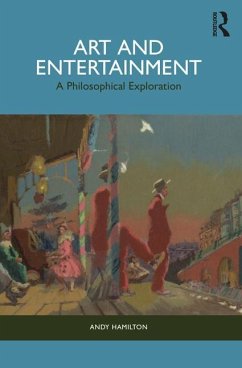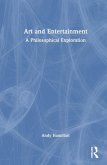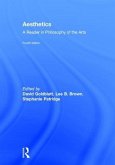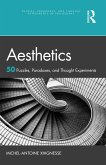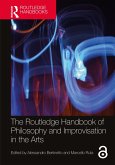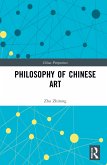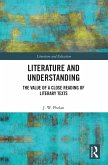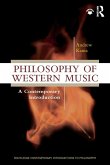Philosophers have discussed art - or artistic practices such as poetry - since ancient times. But systems of art and entertainment appeared only in the modern era - in the West, during the 18th and 19th centuries. And philosophers have largely neglected the concept of entertainment. In this book Andy Hamilton explores art and entertainment from a philosophical standpoint. He argues, against modernist theory, that art and entertainment are not opposites, but form a loosely connected conceptual system. Against postmodernism, however, he insists on their vital differences.
Hamilton begins by questioning the received modernist view, examining artist-entertainers including Jane Austen, Charles Dickens, Louis Armstrong and Billie Holiday. Entertainment, he argues, is by nature audience-centred - but so is art, in a different way. Thus while art should pass the test of time, entertainment must pass the test of its own time - it has to entertain at the time it is produced. Artand entertainment are inter-dependent concepts, and must be understood together with other aesthetic concepts including criticism, genius, canons and design. These concepts form the subject of later chapters of this book, where Hamilton develops a meritocratic position that is neither elitist nor populist. He also addresses the contemporary charge of cultural appropriation, and qualifies it.
An innovative feature of the book is the inclusion of dialogues with artists, critics and academics that help to recast or reformulate the debate. Art and Entertainment: A Philosophical Exploration is essential reading for those working in art and aesthetics, and will also be of interest to those in related disciplines such as cultural studies, music and film studies, with an interest in entertainment.
Hamilton begins by questioning the received modernist view, examining artist-entertainers including Jane Austen, Charles Dickens, Louis Armstrong and Billie Holiday. Entertainment, he argues, is by nature audience-centred - but so is art, in a different way. Thus while art should pass the test of time, entertainment must pass the test of its own time - it has to entertain at the time it is produced. Artand entertainment are inter-dependent concepts, and must be understood together with other aesthetic concepts including criticism, genius, canons and design. These concepts form the subject of later chapters of this book, where Hamilton develops a meritocratic position that is neither elitist nor populist. He also addresses the contemporary charge of cultural appropriation, and qualifies it.
An innovative feature of the book is the inclusion of dialogues with artists, critics and academics that help to recast or reformulate the debate. Art and Entertainment: A Philosophical Exploration is essential reading for those working in art and aesthetics, and will also be of interest to those in related disciplines such as cultural studies, music and film studies, with an interest in entertainment.
"At long last, a book that confronts the ghost in the closet of aesthetic theory: entertainment. Andy Hamilton is highly qualified to tackle it, and the results are compelling, informed, and innovative." - Theodore Gracyk, Minnesota State University Moorhead, USA
"A persuasive perspective on the aesthetics of entertainment, exploring a debate that feels both very old and highly current. Readers discover that the art/entertainment dichotomy is far more complex than it seems." - Elisabet Dijkstra, composer
"Andy Hamilton presents a compelling manifesto for Real Aesthetics: a vision of aesthetic inquiry that places the actual artworld and the lived experience of the artist centre stage. Through dialogue with artists and musicians, critics and philosophers, Hamilton takes us beyond the academy to collaborative spaces in which concepts are defined by their use. Essential reading for philosophers of art, practicing artists and those who like to be entertained." - Andrew Cooper, Warwick University, UK
"With its rich examples, this inventive discussion will reward any reader interested in art or entertainment." - Dawn M. Wilson, University of Hull, UK
"R.G. Collingwood said that a work of entertainment is not a genuine work of art. In this thought-provoking book Hamilton finds plenty of cases to dispute that. One of its main virtues is the way that Hamilton balances theory and practice, interweaving theoretical chapters - which draw on an abundance of deftly chosen examples - with in-depth interviews with artists and philosophers. The result is more than entertaining!" - David Macarthur, University of Sydney, Australia
"A persuasive perspective on the aesthetics of entertainment, exploring a debate that feels both very old and highly current. Readers discover that the art/entertainment dichotomy is far more complex than it seems." - Elisabet Dijkstra, composer
"Andy Hamilton presents a compelling manifesto for Real Aesthetics: a vision of aesthetic inquiry that places the actual artworld and the lived experience of the artist centre stage. Through dialogue with artists and musicians, critics and philosophers, Hamilton takes us beyond the academy to collaborative spaces in which concepts are defined by their use. Essential reading for philosophers of art, practicing artists and those who like to be entertained." - Andrew Cooper, Warwick University, UK
"With its rich examples, this inventive discussion will reward any reader interested in art or entertainment." - Dawn M. Wilson, University of Hull, UK
"R.G. Collingwood said that a work of entertainment is not a genuine work of art. In this thought-provoking book Hamilton finds plenty of cases to dispute that. One of its main virtues is the way that Hamilton balances theory and practice, interweaving theoretical chapters - which draw on an abundance of deftly chosen examples - with in-depth interviews with artists and philosophers. The result is more than entertaining!" - David Macarthur, University of Sydney, Australia

